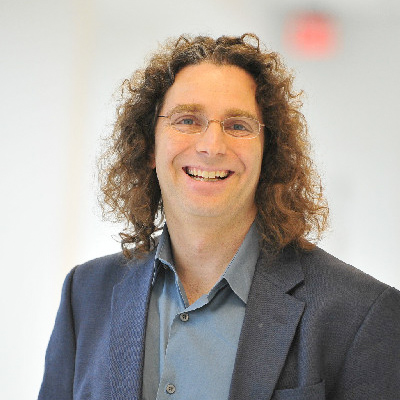Algorithms that find underlying perspectives in language use
The way a person uses language is a direct route to understanding the way they think. Today, researchers don’t just bring people into the lab to study this connection -- the online world gives us access to what social scientist David Lazer and colleagues have called “digital traces that can be compiled into comprehensive pictures of both individual and group behavior, with the potential to transform our understanding of our lives, organizations, and societies.” At the University of Maryland, Dr. Philip Resnik is developing new computational methods for analyzing the digital traces of language use and online behavior, with two goals: to advance our scientific understanding of how language reflects and influences our perceptions, and to develop practical technology, using the science to help solve pressing societal problems.
Mental health issues are a case in point. In the U.S., the human cost of depression-related conditions is staggering: some 25 million American adults will have an episode of major depression this year, suicide is the third leading cause of death for people 10–24 years old, and 18.5% of returning military service members meet criteria for PTSD or depression. Worse, 89.3 million Americans cannot even obtain ready access to a clinician who is qualified to perform a psychological evaluation, and standard screening and diagnostic methods are often limited by the motivation of many individuals to underreport psychiatric symptoms and lack of the self-awareness to report accurately. What if we were able to make early detection and monitoring of mental health problems easier and dramatically more accessible, by analyzing the day-to-day language that people use in their online interactions?
The research agenda goes beyond mental health, though. Language behavior is also a powerful signal of other mental states such as political ideology -- and, conversely, language in traditional and social media can powerfully influence people’s perceptions of political and policy issues. The potential of online language use and behavior to help us understand and even improve the political process is largely untapped. Using the new data and computational methods available to us, how can we identify subtle “spin” in political language and better understand the influence of framing on people’s perceptions and decision-making? How can we track the rise and fall of different “angles” on public issues, or even identify signs that someone’s extreme perceptions may be leading them in the direction of violent action?
Current areas of emphasis in this research include the following:
- Mental health. In 2014, Dr. Resnik launched the first research event designed to bring together computational linguists and clinical psychologists -- the Association for Computational Linguistics Workshop on Computational Linguistics and Clinical Psychology, clpsych.org -- and he is working with psychologists to develop new computational models of language and mental state that take advantage of his decades of experience combining linguistic insight, subject matter expertise, and “big data” analysis.
- Political framing. This question, too, is about the connection between language and mental state. Dr. Resnik is working with political scientists to apply the same key ideas to the analysis of language in the legislative process, traditional media, and social media, in order to shed light on the way that language is used (and sometimes abused) in affecting our decision-making, and to provide new methods for public opinion research.
- New computational tools. Dr. Resnik introduced a new, mobile technology for measuring people’s responses to the language they hear with unprecedented scale and accuracy. The mobile platform helped a team of WJLA-ABC7 and Politico journalists create award-winning coverage of the Obama/Romney debates in 2012, collected reactions to Super Bowl ads for a top consumer-media research firm, and guided Washington Post fact-checking during a recent gubernatorial race. (It is now being spun out as a startup.) His next phase of technology development is focused on methods for identifying and monitoring mental health issues, with an emphasis on collaboration with clinicians to create accurate techniques and address privacy issues responsibly.
Bio
Philip Resnik is Professor of Linguistics at the University of Maryland, with a joint appointment at the University of Maryland Institute for Advanced Computer Studies and an affiliate appointment in Computer Science. He earned his bachelor's degree in Computer Science at Harvard in 1987, and his Ph.D. in Computer and Information Science at University of Pennsylvania in 1993, and he joined the University of Maryland faculty in 1996. His industry experience prior to entering academia includes time in R&D at Bolt Beranek and Newman, IBM T.J. Watson Research Center, and Sun Microsystems Laboratories. He holds two patents, with one more pending, and has authored or co-authored more than 100 peer-reviewed articles and conference papers. At various times his work has been highlighted in Newsweek, The Economist, New Scientist, and on National Public Radio, and he has been a frequent organizer and panelist at SXSW Interactive.
Dr. Resnik was a part of the “statistical revolution” in language technology, a period when the field made a key transition from the idea of programming computers to understand language -- which never worked! -- to designing algorithms that learn from large quantities of language data. (People who work on language technology were doing “big data” before it was cool...) His research focuses on computational modeling of language that brings together linguistic knowledge, subject matter expertise, and data-driven machine learning methods, with an emphasis on applications in computational social science as well as multilingual text analysis.
Dr. Resnik’s research agenda moved toward the connection between language and mental health thanks in no small part to his wife, Dr. Rebecca Resnik, a clinical psychologist. After many dinnertime conversations about his work and hers, they realized that there was enormous potential in bringing together computational linguists and mental health professionals and hatched the idea for the first-ever Workshop on Computational Linguistics and Clinical Psychology (CLPsych), which they organized with Meg Mitchell of Microsoft Research in 2014 (clpsych.wordpress.com). As a result, a new sub-field was born: the second CLPsych workshop was held in 2015 (clpsych.org) and is becoming an annual event that brings together language technology researchers with clinicians who truly understand the problem of mental health from the trenches.
Outside academia, Resnik is a serial entrepreneur, with experience that includes being technical co-founder of CodeRyte (clinical natural language processing, acquired in 2012 by 3M Health Information Systems), lead scientist for Converseon (spearheading development of their social media sentiment analysis platform, now marketed by Revealed Context as ConveyAPI), and founder of React Labs, which is commercializing his research on scalable real-time response measurement and engagement using mobile devices (reactlabs.com).
Website: http://umiacs.umd.edu/~resnik/
In the News
Newsweek, November 12, 2014.
SXSW Interactive Panel, March 14, 2015.
The Kojo Nnamdi Show, NPR, July 14, 2014.
The Kojo Nnamdi Show, NPR, October 16, 2012.
Washington Post, May 6, 2014.
PR Newswire, March 25, 2013.
Publications
Videos
Awards
Morris and Dorothy Rubinoff Dissertation Award, University of Pennsylvania, 1993
awarded for “an advance in innovative application of computer technology”
IBM Graduate Fellowship, 1992–1993
Boylston Speaking Prize, Harvard University, 1986
Patents
U.S. Patent No. 05267345: "Speech recognition apparatus which predicts word classes from context and words from word classes."
Issued November 30, 1993. Co-inventor with P. Brown, S. Della Pietra, V. Della Pietra, R. Mercer, and S. Chen.
U.S. Patent No. 6615168: "Multilingual agent for use in computer systems."
September 2, 2003. Co-inventor with G. Adams, R. Kuhns, and M. Torrance.


